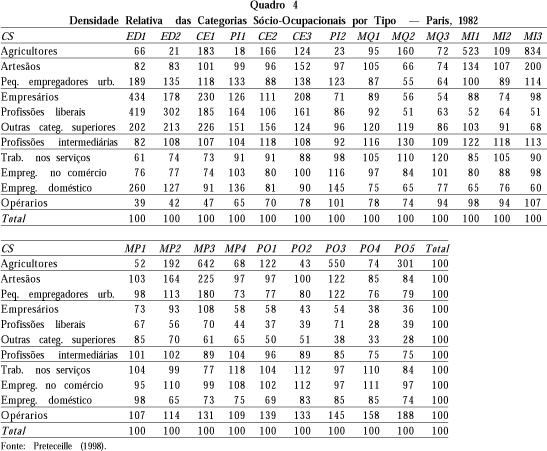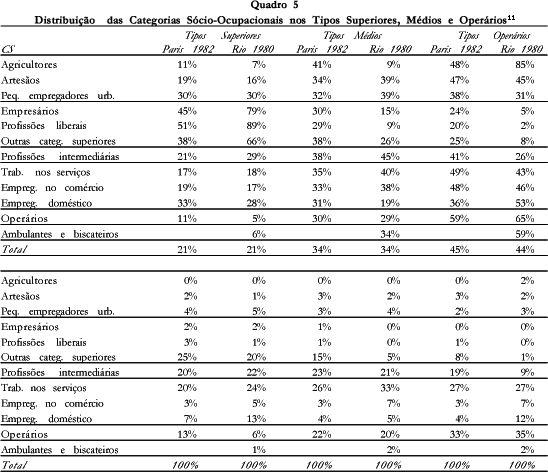Globalization has been widely linked with an increase in urban inequality, poverty and segregation. The model of the global city in particular has spread the idea that the restructuring of the labor market resulting from the economic globalization process inevitably produces a new type of duality. The cases of Paris and Rio de Janeiro allow a comparison of two cities with deeply unequal labor markets and which have been affected in different ways by economic globalization. What are the trends in the evolution of the social structure of these two cities? To answer this question, changes in their occupational structure and the impact of these changes on urban segregation patterns were systematically compared through the use of recent census data. Several hypotheses are put forward for interpreting the similarities and differences observed between the two cities and the global city model, and for analysis of their relationship to specific forms of global economic restructuring, as well as to specific characteristics of labor relations, social policy, class structure and social stratification.
Globalization; Inequalities; Urban segregation; Rio de Janeiro; Paris












